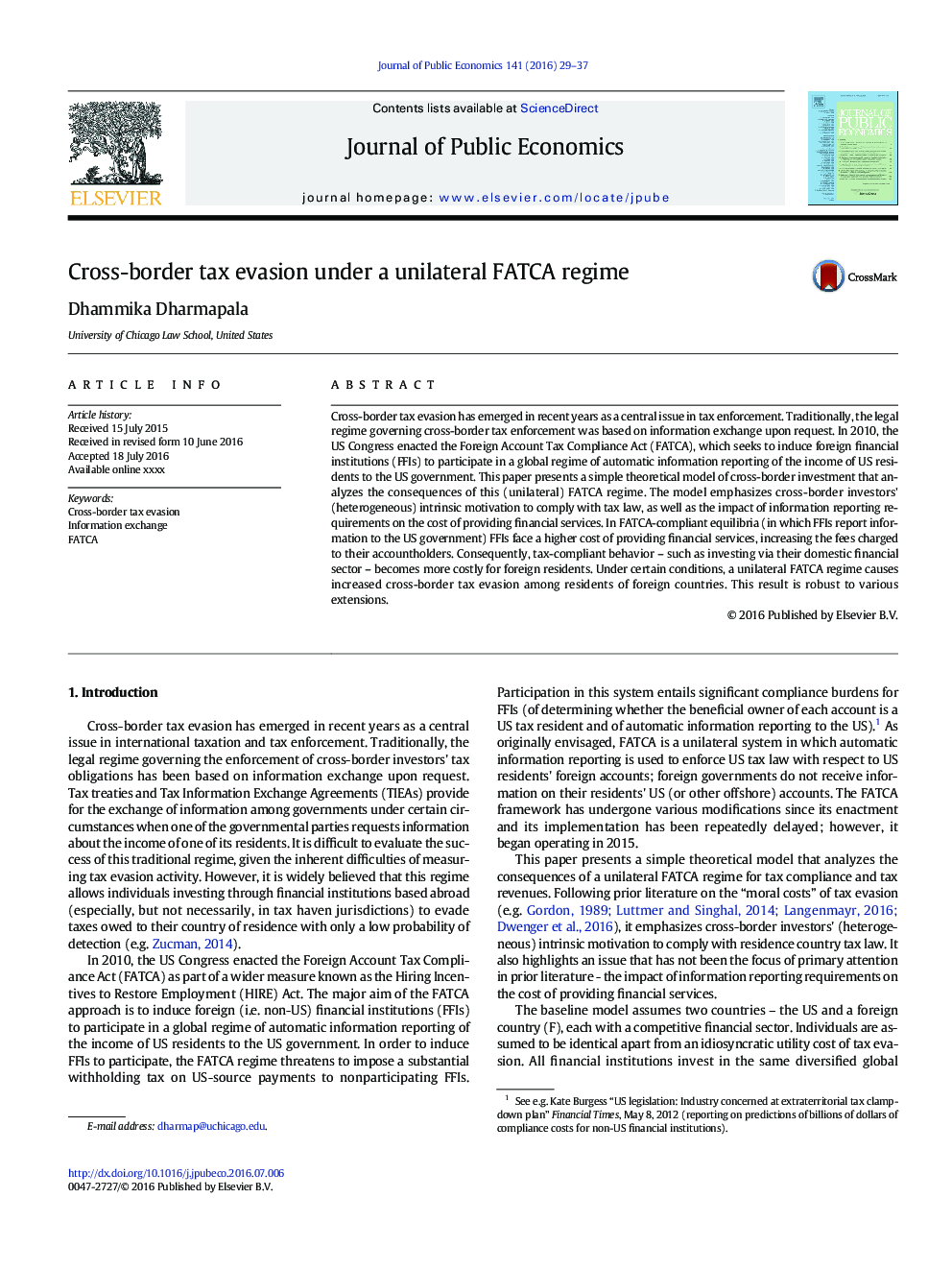| Article ID | Journal | Published Year | Pages | File Type |
|---|---|---|---|---|
| 968561 | Journal of Public Economics | 2016 | 9 Pages |
•In 2010, the US Congress enacted the Foreign Account Tax Compliance Act (FATCA).•FATCA entails automatic information reporting of the income of US residents to the US by foreign financial institutions.•This paper presents a simple theoretical model of cross-border investment that analyzes the consequences of this (unilateral) FATCA regime.•A unilateral FATCA regime may cause increased cross-border tax evasion among residents of foreign countries.
Cross-border tax evasion has emerged in recent years as a central issue in tax enforcement. Traditionally, the legal regime governing cross-border tax enforcement was based on information exchange upon request. In 2010, the US Congress enacted the Foreign Account Tax Compliance Act (FATCA), which seeks to induce foreign financial institutions (FFIs) to participate in a global regime of automatic information reporting of the income of US residents to the US government. This paper presents a simple theoretical model of cross-border investment that analyzes the consequences of this (unilateral) FATCA regime. The model emphasizes cross-border investors' (heterogeneous) intrinsic motivation to comply with tax law, as well as the impact of information reporting requirements on the cost of providing financial services. In FATCA-compliant equilibria (in which FFIs report information to the US government) FFIs face a higher cost of providing financial services, increasing the fees charged to their accountholders. Consequently, tax-compliant behavior – such as investing via their domestic financial sector – becomes more costly for foreign residents. Under certain conditions, a unilateral FATCA regime causes increased cross-border tax evasion among residents of foreign countries. This result is robust to various extensions.
